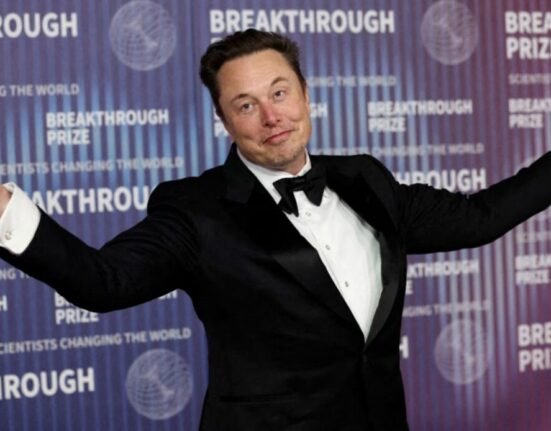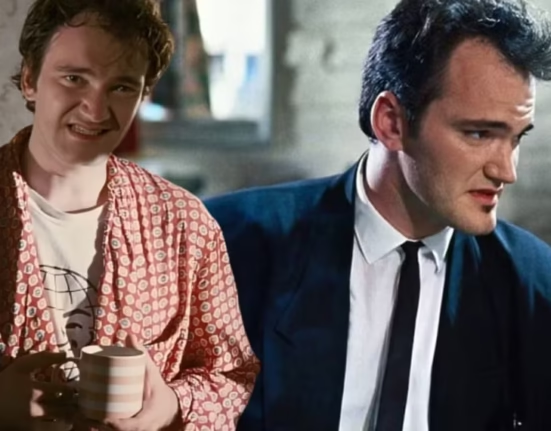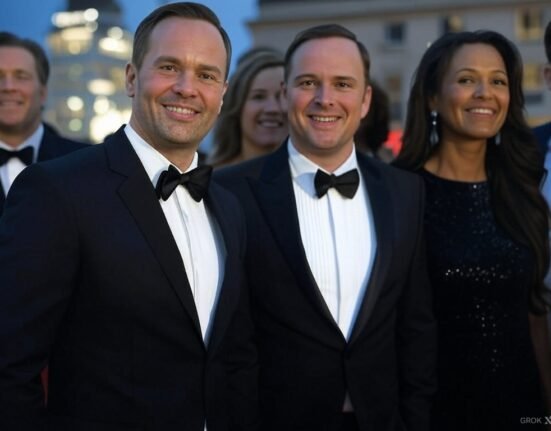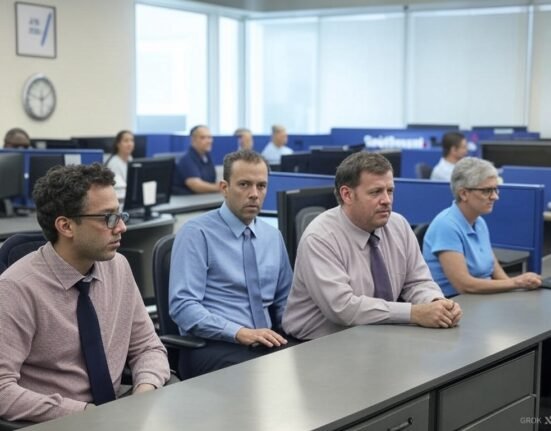Football is undoubtedly a team sport, yet it is the intricate dynamics of recruitment and coaching that often determine a club’s success or failure. The recruitment process in football transcends beyond merely signing players; it involves meticulous planning, strategic foresight, and a deep understanding of the club’s long-term vision. In this regard, the role of sporting directors becomes increasingly pivotal, as they are charged with evaluating talent, identifying needs, and ensuring compatibility with the coaching philosophy.
At the core of any top-performing football club lies a robust recruitment strategy that fosters the acquisition of players who not only exhibit exceptional skill sets but also align culturally and ethically with the club’s identity. With the right sporting director at the helm, clubs can cultivate a thriving environment that enhances team performance both on and off the pitch. The thoughtful integration of new talents, strategic transfers, and clear communication between coaching staff and recruitment personnel can significantly impact the overall success of a team.
Manchester United, one of the most storied clubs in football history, has recently undergone notable changes within its recruitment framework. These shifts highlight the importance of maintaining a cohesive and well-aligned management structure, especially regarding the relationship between the sporting director and coaching staff. As the club navigates through the complexities of modern football, the departure of individuals like Ashworth underscores the relentless nature of recruitment in this competitive era. The departure can significantly influence the club’s operational dynamics and recruitment efficacy, accentuating the need for a compatible and visionary sporting director.
Understanding the importance of these aspects lays the foundation for an in-depth exploration of Manchester United’s evolving recruitment strategy and the implications of Ashworth’s exit on the club’s future trajectory.
The Appointment of Dan Ashworth: Initial Expectations and Objectives
Dan Ashworth’s appointment as the director of football at Manchester United marked a significant shift in the club’s recruitment strategy, particularly in light of his prior success at Newcastle United. His hiring came at a time when the club faced intense scrutiny regarding its transfer policies and player development pathways. The expectation surrounding Ashworth was that he would bring a fresh perspective and established practices that could propel the club toward its ambitious goals.
Upon his arrival, Ashworth was tasked with addressing several key objectives that the Manchester United hierarchy set forth. Firstly, there was an urgent need to improve the scouting network, ensuring that the club identified talent at both the domestic and international levels effectively. As part of this vision, Ashworth was expected to implement a more analytical approach to recruitment, utilizing data and metrics to drive decision-making processes.
Furthermore, Ashworth’s role included the critical responsibility of aligning the recruitment strategy with the tactical vision of the new head coach, Ruben Amorim. This alignment was vital to ensure that new signings would not only meet the club’s standards but also fit seamlessly into Amorim’s style of play. The expectation was that Ashworth would facilitate a cohesive partnership between the coaching staff and recruitment team, promoting collaboration and shared objectives.
In summary, Dan Ashworth’s appointment at Manchester United was characterized by high expectations and clear objectives aimed at revitalizing the club’s recruitment framework. By capitalizing on his past experiences and insights gained at Newcastle United, Ashworth was poised to strengthen the club’s operations and support its aspirations for growth and success on the pitch.
Sir Jim Ratcliffe’s Role and Influence in Club Management
Sir Jim Ratcliffe, a prominent figure in the sporting world, has emerged as the minority owner and principal decision-maker at Manchester United, a position that carries immense responsibility and influence. His strategic vision for the club is driven by a clear focus on returning Manchester United to its former glory, with innovation and successful recruitment being pivotal components of this goal. Ratcliffe’s management style reflects his business acumen, favoring a data-driven approach that emphasizes performance metrics, player analytics, and the overall enhancement of club operations. This methodology has set a distinct tone in the club’s management and recruitment processes.
At the core of Ratcliffe’s priorities lies a commitment to fostering a competitive squad that can contend for national and international titles. Ratcliffe recognizes the importance of blending experienced talents with promising young players, thus creating a balanced team dynamic that can nurture future stars. His expectations regarding recruitment were made clear during his early interactions with key club officials, including the now-departed Ashworth. Ratcliffe sought to instill a culture of accountability and performance within the club, wherein recruitment decisions are backed by meticulous research and an unwavering focus on long-term success.
Moreover, Ratcliffe’s perspective on leadership qualities is particularly noteworthy. He values leaders who possess not only technical proficiency but also a strong psychological edge—players who demonstrate resilience, tactical intelligence, and the ability to perform under pressure. This philosophy influences the recruitment strategy, as it underscores the necessity of selecting individuals who can embody the ethos of Manchester United both on and off the pitch. Ratcliffe’s governance continues to shape the club’s aspirations, reinforcing a clear direction that is crucial for navigating the relentless nature of football recruitment and establishing a foundation for achieving sustained success.
The Breakdown of Relations Between Ashworth and Ratcliffe
The departure of Dan Ashworth from Manchester United has drawn attention to the underlying tensions between him and Sir Jim Ratcliffe, highlighting the intricate dynamics of football recruitment within the club. The start of Ashworth’s tenure was marked by ambitious goals aimed at revitalizing the club’s talent acquisition strategy. However, differences in their respective visions soon became apparent, leading to a tumultuous relationship. While both striving for success, their approaches to recruitment and player development diverged significantly.
One major factor contributing to the discord was the disconnect in communication styles. Ashworth, known for his analytical and data-driven approach, often emphasized a long-term vision focused on nurturing youth talent. In contrast, Ratcliffe’s strategy appeared more immediate, prioritizing quick results through high-profile signings. This misalignment created friction, as decisions regarding target players and overall recruitment objectives became increasingly contentious. The challenge was further exacerbated by the high stakes involved in elite football, where every decision is scrutinized, creating pressure on personal interactions and collaboration.
The recruitment strategy at Manchester United requires a delicate balance of immediate results and sustainable growth, a balance that Ashworth and Ratcliffe struggled to achieve together. Even though both shared a passion for the club’s success, the inability to harmonize their visions created an atmosphere of frustration and uncertainty. As discussions turned contentious and stalled, the writing was, unfortunately, on the wall for Ashworth’s future at the club. The pressure mounting from lack of consensus in tackling recruitment strategies ultimately culminated in his dismissal.
A Swift Decision: Analyzing the Timing of Ashworth’s Departure
The abrupt exit of Ashworth from Manchester United has been a topic of much discussion in the football community, primarily due to the urgent context surrounding his departure. The timing suggests that the club required a swift decision to reflect its immediate objectives for competitiveness in the league. The recruitment process in football often functions under the pressure of time-sensitive opportunities; thus, quick resolutions become crucial when addressing administrative changes within a leading club.
In a high-stakes environment such as Manchester United, where aspirations for success are paramount, the decision to part ways with a key figure like Ashworth indicates a significant push towards damage limitation. This strategy is often employed by clubs facing challenges in achieving their goals, as it allows for the realignment of resources and personnel in order to mitigate further setbacks. The necessity for urgent action suggests that the club is acutely aware of its current trajectory and the competitive landscape of football.
Moreover, the ramifications of such a rapid decision can be profound, affecting not only the immediate recruiting strategy but also the broader operational framework of the club. The recruitment department’s role is pivotal in identifying and securing talent that can enhance the squad’s performance. Thus, a sudden leadership change may disrupt ongoing negotiations or scouting operations, complicating Manchester United’s efforts to reinforce its team in the upcoming transfer windows.
This entire scenario underscores the relentless nature of football recruitment, where clubs must continuously adapt to dynamic circumstances. As Manchester United seeks to reclaim its stature within the sport, the implications arising from Ashworth’s departure will likely resonate throughout the club, influencing both short-term objectives and long-term strategies in talent acquisition.
Impact on Ruben Amorim and Team Cohesion
The recent departure of recruitment expert, Ashworth, from Manchester United could significantly impact head coach Ruben Amorim and the overall dynamics within the team. As the sporting director plays a crucial role in identifying and acquiring talent, his exit may create a substantial void in leadership and strategic direction. Amorim, known for his tactical acumen and ability to develop players, faces the challenge of maintaining team cohesion during this transition period. Without a sporting director to support his vision, the processes of recruitment and integration of new players into the squad may become disjointed.
One potential issue Amorim will confront is the uncertainty surrounding the appointment of an interim sporting director. This lack of clarity may hinder Amorim’s ability to align his tactical strategies with the potential skill sets of incoming players, making it difficult to maintain a coherent playing style. The absence of clear recruitment strategies could lead to inconsistencies in team performance, which may affect the morale of the current squad. Moreover, the integration of new signings without a cohesive recruitment framework can result in a misfit within the squad, diminishing the team’s overall effectiveness.
Furthermore, Amorim may need to exert additional effort to rally his team amid speculation and instability stemming from Ashworth’s departure. Fostering trust and unity among the players will be essential for ensuring collective focus on their objectives. He must emphasize communication and collaboration to navigate potential disruptions in team dynamics, especially as relationships among players may begin to fray under uncertainty. Ultimately, the challenge lies in harnessing the team’s potential to absorb shifts within management and maintaining a buoyant morale while striving for success in a highly competitive league.
Lessons from Ashworth’s Tenure: What Can Be Learned?
The brief tenure of Ashworth at Manchester United serves as a crucial case study for evaluating the qualities necessary for a successful sporting director. During his time with the club, several lessons emerged regarding strategic recruitment and management practices that can inform future endeavors, not only at Manchester United but across the Premier League.
One critical aspect observed was the importance of aligning recruitment strategies with the broader club vision. A successful sporting director must possess a clear understanding of the club’s identity and long-term objectives. Ashworth’s departure highlighted the challenges that arise when there is a disconnect between recruitment efforts and the overarching goals of the club. For future sporting directors, ensuring that recruitment aligns with club philosophy is essential for maintaining coherence in team development.
Moreover, effective communication and collaboration between the sporting director and the coaching staff are paramount. This relationship can significantly influence player selection and development. Ashworth experienced difficulty in fostering such cooperation, which impeded the implementation of a unified vision for player development. Thus, it is imperative for sporting directors to establish a strong rapport with coaches to cultivate a synergistic environment that fosters growth and performance.
Additionally, there is a pressing need for agility in response to the ever-changing dynamics of modern football. Recruitment processes must be adaptable, allowing clubs to pivot quickly in the face of emerging opportunities or challenges. Ashworth’s tenure underscored the necessity for a proactive approach to recruitment, enabling the club to stay competitive in the fast-paced and competitive landscape of the Premier League.
In conclusion, the lessons from Ashworth’s time at Manchester United highlight the importance of strategic alignment, collaborative relationships, and adaptive recruitment practices. These insights can serve as guiding principles for future sporting directors looking to navigate the complexities of football recruitment effectively.
Future Prospects: Who Will Take Over as Sporting Director?
The departure of Dan Ashworth from Manchester United has instigated significant speculation regarding potential candidates to take on the role of sporting director. This pivotal position requires an individual capable of navigating the complexities of football recruitment while aligning with the club’s overarching strategy. As Manchester United seeks a successor, a multitude of factors must be considered in identifying the right profile for this crucial role.
First and foremost, experience in football management and recruitment is essential. The ideal candidate should demonstrate a robust track record in player scouting, talent development, and negotiation. A thorough understanding of the football market and potential for identifying emerging talents are critical attributes that will serve the club well, particularly in an increasingly competitive environment. Furthermore, familiarity with the dynamics of the Premier League and its unique demands can give an advantage in making well-informed decisions that impact the club’s performance on the pitch.
Another significant consideration is the candidate’s compatibility with Manchester United’s ethos and culture. The sporting director must embody the club’s rich history and values while embracing a forward-thinking approach to player acquisition and development. A collaborative mindset is vital, as this role necessitates working closely with coaching staff, scouting teams, and other stakeholders within the organization.
Potential candidates include seasoned professionals already embedded within football’s intricate web, such as former directors at other top clubs or current assistants who have shown promise in their respective roles. Their familiarity with high-pressure environments and the expectations tied to a prestigious club like Manchester United will be invaluable. Ultimately, the selection of the new sporting director will have lasting implications for the club’s recruitment strategy and overall trajectory in the coming years.
Conclusion: The Ongoing Evolution of Manchester United under New Leadership
The recent departure of key personnel, including the notable figure of Ashworth from Manchester United, underscores the dynamic and often ruthless nature of football recruitment. This personnel shift is not merely an isolated event; it reflects broader themes prevalent in modern football management and the imperative for clubs to adapt continually to an evolving landscape.
Leadership changes within such a prestigious club evoke a myriad of responses, often influencing recruitment strategies and shaping the club’s identity. The decisions made by the new leadership team are crucial as they steer Manchester United towards a more successful future. With Ashworth’s exit, there is an opportunity for fresh perspectives and innovative strategies that could redefine the club’s approach to scouting and player acquisition. This necessitates a reevaluation of the existing hierarchy and policies, paving the way for potential transformation.
Furthermore, the implications of these changes extend beyond mere personnel adjustments; they signify a deep-rooted shift in organizational philosophy. As Manchester United seeks to regain its footing in a highly competitive Premier League, the focus will increasingly be on attracting talent that aligns with a newfound vision. This encompasses not only the assessment of player talent but also their compatibility with the club’s culture and long-term aspirations.
The landscape of football management is in constant flux, and Manchester United’s evolution under new leadership serves as a case study for other clubs navigating similar challenges. As the recruitment process becomes more sophisticated, the integration of data analytics and a more holistic approach to player evaluations will be pivotal. In conclusion, the ongoing changes at Manchester United illustrate the essential nature of strong leadership in fostering an environment that champions growth, resilience, and, ultimately, success.













Leave feedback about this